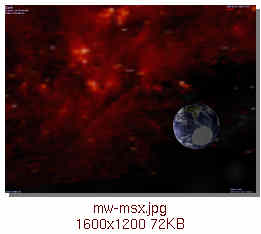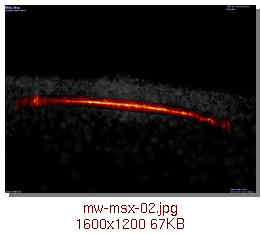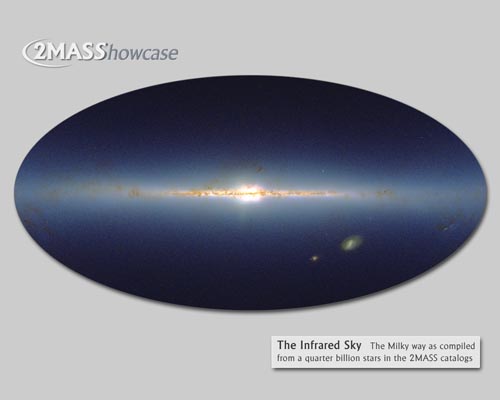It does not work in Celestia v1.3.0 or earlier versions.
Starting with v1.3.1pre3, Celestia supports large Deep Sky objects. You now can use a sphere within Celestia as a "planetarium". By this I mean that a sphere can be used to show panoramic maps of the entire sky surrounding the solar system. Various all-sky surveys are starting to make their results available as low resoution mosaics that can be displayed this way.
Here's a simple example, showing a map of the infrared sources that are in the galactic plane.

Oh, sorry, I guess that view is a bit narrow-angled
Here it is from a distance.
 (As usual, these thumbnails link to much larger images.)
(As usual, these thumbnails link to much larger images.)
It's a sphere with a 10,000 LY radius centered on the solar system with a PNG image of the MSX IR mosaic as its surface texture. Details can be found at http://www.lns.cornell.edu/~seb/celestia/billboard.html#7.2
Addendum:
At 20:30 U.S. Eastern Daylight time on June 16th, I updated the model of the sphere so that a surface texture map with 0 degrees of longitude in the center will properly align with the galactic center. The original model was off by 90 degrees. I also corrected the accompanying MSX map to have 0 degrees of longitude in the center.
As a result, the appearance of the addon is unchanged, so you don't need to download the new version unless you plan to use this particular 3DS model for your own galactic maps.

